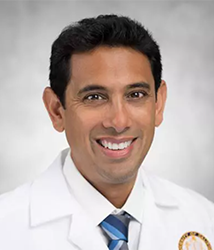Reproductive Endocrinology Fellowship Training Program
Program Director: Irene Su, M.D., M.S.C.E.
Associate Program Director: Rachel Whynott, MD
About the Fellowship
The Division of Reproductive Endocrinology and Infertility (REI) strives to lead the field in REI clinical care, research and education. Our fellowship training program is designed to qualify individuals for the subspecialty board in reproductive endocrinology and infertility. The goal of this program is to provide fellows with a balance of training between clinical and research activities and to prepare them for an academic career for leadership in reproductive endocrinology.
Our three primary missions:
- Clinical Care: Use a multi-disciplinary model to continuously improve clinical care and provide REI care primarily to affected women in the UCSD regional network; and secondarily, provide consultation for women outside the UCSD regional network.
- Research: With extramural funding, grow our diverse portfolio across a spectrum of basic, translational, clinical and epidemiologic research. The foci of research span neuroendocrinology of reproduction, endometriosis, polycystic ovarian syndrome (PCOS), oncofertility, ovarian biology and gamete and embryo development.
- Education: Prepare academic leaders for a career in REI with a solid foundation for leadership.
Faculty
The clinical and research activities of the Division of Reproductive Endocrinology and Infertility offer diverse training programs, faculty institutions, physician scientists and academic clinicians. This provides exposure to different practice approaches, patient populations and experiences of the course of fellows training. The faculty preceptors and their depth of REI research expertise are listed below:
Clinical
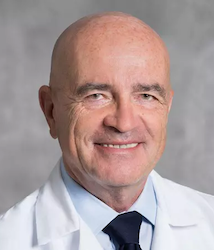
Antoni Duleba, M.D.
Director, Division of Reproductive Endocrinology and Infertility
Professor of Obstetrics, Gynecology, and Reproductive Sciences, Division of Reproductive Endocrinology and Infertility
Expertise: PCOS, endometriosis and translational.
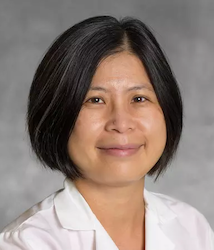
H. Irene Su, M.D., MSCE
Fellowship Program Director, Reproductive Endocrinology and Infertility
Professor of Obstetrics, Gynecology, and Reproductive Sciences
Oncofertility, reproductive survivorship, epidemiology, dissemination and implementation (D&I) and trials
Expertise: oncofertility, reproductive survivorship, epidemiology, dissemination and implementation (D&I) and trials.
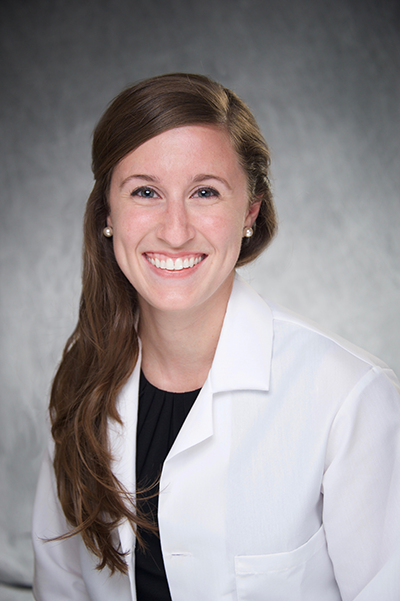
Rachel Whynott, MD
Associate Fellowship Program Director, Reproductive Endocrinology and Infertility
Associate Professor of Obstetrics, Gynecology, and Reproductive Sciences
Expertise: infertility, fertility preservation, IVF, robotic surgery, tubal anastomosis, LGBTQ+ family building
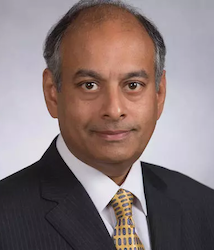
Sanjay Agarwal, M.D., FACOG
Director, Center for Endometriosis Research and Treatment
Professor of Obstetrics, Gynecology, and Reproductive Sciences, Division of Reproductive Endocrinology and Infertility
Expertise: infertility, endometriosis, and clinical trials.
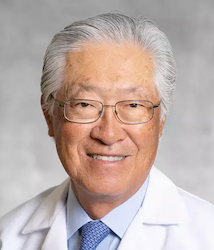 R. Jeffrey Chang, M.D.
R. Jeffrey Chang, M.D. Professor Emeritus, Obstetrics, Gynecology, and Reproductive Sciences, Division of Reproductive Endocrinology and Infertility
Expertise: ovarian physiology, PCOS and clinical endocrinology.
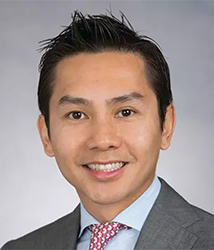
T. Mike Hsieh, MD
Professor, Urology
Director, Men's Health Center, UC San Diego
Expertise: male factor infertility.
Clinical Affiliates & Faculty
Reproductive Partners Fertility Center – San Diego
Kaiser Permanente – San Diego, Divisions of REI and Medical Endocrinology
- Patricia Wu, M.D. – Site Director of Medical Endocrinology
- Meredith McMullen, M.D.– Site Director of Minimally Invasive Gynecologic Surgery
- Richard Yoo, M.D. – Site Director of REI
- Helen Page Anglin, M.D.
- Tracy Harrison, M.D.
Rady Children's Hospital – Division of Pediatric Endocrinology
- Michael Gottschalk, M.D., Ph.D. - Professor, UC San Diego; Division Director of Pediatric Endocrinology and Diabetes, Rady's Children Hospital-San Diego
- And colleagues
Research
- Heidi Cook-Andersen, M.D., Ph.D. - Associate Professor, Obstetrics, Gynecology and Reproductive Sciences, Division of Reproductive Endocrinology and Infertility. Oocyte and early embryo development, RNA and single cell sequencing.
- Sasha Kauffman, Ph.D. - Professor, Obstetrics, Gynecology and Reproductive Sciences, Division of Reproductive Endocrinology and Infertility. Neuroendocrinology, neuroanatomy of reproduction and kisspeptin.
- Mark Lawson, Ph.D. - Professor, Obstetrics, Gynecology and Reproductive Sciences, Director, UCOP Postdoctoral Fellowship Program; Faculty Director, Postdoctoral Training and Education. Neuroendocrinology of reproduction.
- Pamela Mellon, Ph.D. - Vice-Chair for Research; Professor Emeritus, Obstetrics, Gynecology and Reproductive Sciences and Neurosciences; Director, NICHD Center for Reproductive Science and Medicine and the NIH Training Program. Regulation and development of the reproductive neuroendocrine system.
- Varykina Thackray, Ph.D. - Associate Professor, Obstetrics, Gynecology and Reproductive Sciences, Division of Reproductive Endocrinology and Infertility. PCOS genetic influences and microbiome.
- Miles Wilkinson, Ph.D. - Professor, Obstetrics, Gynecology and Reproductive Sciences, Division of Reproductive Endocrinology and Infertility. Transcriptional pathways of stem cell and germ cell development.
Fellows
UC San Diego Fellows in Reproductive Endocrinology
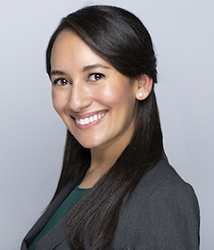
Kelly Chacón, M.D.
7/2023-7/2026 Fellow
Hometown: Miami, FL
Undergraduate School: Yale University, New Haven, Connecticut
Medical School: Harvard Medical School, Boston, MA
Residency: Ob/Gyn and Reproductive Biology at Brigham and Women's Hospital and Massachusetts General Hospital, Boston, MA
Fellowship: UC San Diego, La Jolla, CA
Career Interests: Oncofertility, Polycystic Ovarian Syndrome, Fertility Preservation, Reproductive Justice
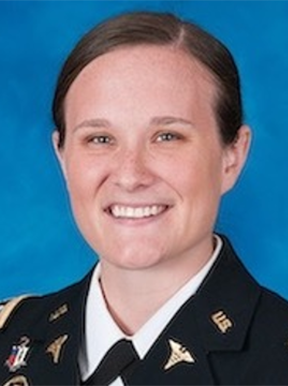
Carissa Pekny, M.D.
7/2024-7/2027 Fellow
Residency: National Capital Consortium
Fellowship: UC San Diego, La Jolla, CA
Career Interests: Reproductive Endocrinology
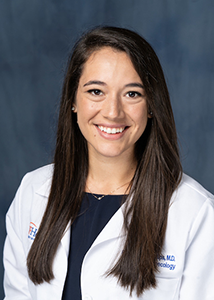
Emily A. Allard-Phillips, M.D.
7/2025-6/2028 Fellow
Medical School: Emory University School of Medicine, Atlanta, GA
Residency: Obstetrics & Gynecology at the University of Florida, Gainesville, FL
Fellowship: UC San Diego, La Jolla, CA
Career Interests: Reproductive Endocrinology
Structure & Rotations
Structure and rotations are reflected in the block diagram.
CLICK HERE TO VIEW AY 2024-2025
Fellows participate in UCSD REI call.
Clinical Experience
Our aim is to use a multi-disciplinary model to continuously improve clinical care and provide REI care primarily to those affected in the UCSD regional network; and secondarily, provide consultation for those outside the UCSD regional network.
Fellows actively participate in the evaluation, management, and follow-up of patients with special emphasis toward the comprehensive understanding of reproductive endocrinology disorders and infertility processes. Acquisition of knowledge and techniques in assisted reproductive technologies (ART) and surgery are integrated segments of our training program. Clinical activities are concentrated in the first 12 months and the last 12 months (Year 1 and Year 3) of training. Research is focused in the 12 months of Year 2. Diverse reproductive disorders are managed by the faculty with increasing responsibility by the fellows. Fellows are also given appropriately increasing autonomy in their fellow clinics, which take place in the second half of Year 1, and throughout Year 3.
Reproductive (UCSD, RPSD), Medical (Kaiser), and Pediatric Endocrinology (Rady Children's Hospital): Fellows will participate in the evaluation and management of patients with reproductive disorders under the supervision of the full-time clinical faculty within the Division of Reproductive Endocrinology and Infertility. Fellows run the Ovulation Induction Clinic, which allows them to follow through the evaluation, treatment and outcomes of their patients.
Surgery: Under the supervision of clinical faculty at UCSD and RPSD, fellows gain experience in a variety of surgical procedures and related patient care activities. They will be involved in the surgical management of patients which are seen throughout the year with full-time clinical faculty as well as those seen in their own clinic. During a six-month interval, fellows will also attend and participate in the surgical management of patients seen at the Kaiser Reproductive Endocrinology and Infertility Clinics as well as with their Minimally Invasive Gynecology surgeons.
Assisted Reproductive Technology (ART) & Men's Reproductive Health: Fellows will receive training in ART at the Reproductive Partners-UCSD Fertility Center. They will be supervised by clinical faculty in learning the principles of gamete physiology and acquiring the proficiency in IVF/ICSI and relevant laboratory procedures. ART training begins in the first year. Fellows are involved in ART procedures, including oocyte retrievals and live embryo transfers.
During the ART rotation, fellows will receive training in andrology. The fellow will attend a male infertility clinic once a week for 3 months during this rotation under the supervision of UCSD faculty reproductive urologist.
Education
Our aim is to prepare academic leaders for a career in REI with a solid foundation for leadership. Specific educational activities are organized by participating sites:
UC San Diego
- Weekly didactic sessions with the entire clinical faculty. Sessions are 1.5 hour long and consist of interactive seminars on subjects relevant to reproductive endocrinology and infertility, case reviews and sessions on statistics and epidemiology.
- Monthly journal club with the entire clinical faculty. Sessions are 1.5 hour long and consist of critical review of selected manuscripts: a faculty member presents one manuscript and another by a fellow.
- Department Grand Rounds (2x/monthly)
- Department REI M&M (1x/monthly)
- Clinical Research Enhancement through Supplemental Training (CREST) Program is a master's level comprehensive program that covers epidemiology, patient-oriented research, biostatistics, heath service research, data management and information, scientific communication skills and professional development electives. These credits can be applied to a Master of Advanced Studies (MAS) degree in Clinical Research.
Reproductive Partners San Diego (RPSD)
Throughout the three years of fellowship training, fellows undergo ART training at RPSD facilities. This includes outpatient clinical evaluations of new patients, monitoring of ovulation induction and superovulation cycles, intrauterine inseminations, IVF, and surgery supervised by the REI faculty.
RPSD provides full range of clinical services pertinent to Reproductive Endocrinology and Infertility with particular emphasis on assisted reproductive technology (ART), especially IVF and surgical procedures relevant to REI.
Under the supervision of the USCD faculty, fellows perform surgical procedures including office diagnostic hysteroscopies and operative hysteroscopies, including mullerian anomalies. A major component of this rotation is participation in IVF. In particular, fellows participate in evaluation of infertile patients, interpretation of diagnostic tests, planning patient management and performing relevant procedures such as sonographic evaluations of folliculogenesis, oocyte retrievals and mock embryo transfers under direct supervision of the attending faculty. Major benefits of this rotation include significant and diverse clinical volume, and hands-on experience in IVF-related procedures.
Kaiser Permanente San Diego
The particular emphasis of this REI rotation is the opportunity to manage patients with less common conditions relevant to REI. The Year 1 fellow spends one half-day, twice a month during first year of the training on Kaiser REI rotation. Training of REI fellows at Reproductive Endocrinology Kaiser Foundation facility provides a valuable educational experience due to high patient volume and exposure to a variety of uncommon reproductive endocrine disorders. This will include outpatient clinical activities and surgery supervised by the REI faculty.
The medical endocrinology rotation will provide educational opportunities to expose and train the Year 1 fellow in relevant aspects of medical endocrine disorders. The Year 1 fellow spends on average 10-13 sessions (from October to March). A particular emphasis exists for providing experience with patients with conditions such as diabetes, thyroid disorders, parathyroid disorders and adrenal disorders. Fellows participate in evaluation of these patients, interpretation of diagnostic tests and planning patient management.
Rady Children's Hospital
The RCH rotation will provide educational opportunities in all aspects of pediatric endocrinology training. The Year 1 fellow spends one half-day monthly for nine months and Year 3 fellow spends one half-day weekly for three months at Rady Children's Hospital (RCH) facilities. A particular emphasis exists for providing experience with children with a variety of endocrine disorders such as obesity, diabetes, growth hormone deficiency and thyroid disorders. In addition, RCH has a robust transgender/transsexual patient care program to which fellows are exposed.
Career Development
Career Development is supported through these activities:
- Mentor meetings,
- Fellowship director meetings,
- Pamela Mellon, Director NICHD Center for Reproductive Science and Medicine and the NIH Training Program
- T32 in Reproductive Science,
- WRHR (K12) for mentored career development; and,
- Pipeline of reproductive scientists.
Fellows have the opportunity to participate in undergraduate and/or graduate courses to remedy background deficiencies and to acquire skills important to their career goals. All fellows complete an ethics in biomedical research course. There are opportunities to undertake clinical research and public health coursework through the UCSD ACTRI and the newly established UCSD School of Public Health.
Research
With extramural funding, our aim is to grow our diverse portfolio across a spectrum of basic, translational, clinical and epidemiologic research. The foci of research span neuroendocrinology of reproduction, endometriosis, polycystic ovarian syndrome (PCOS), oncofertility, ovarian biology and gamete and embryo development.
Functioning in a coordinated fashion and with direct participation by the fellows, our training program offers diverse research opportunities.
Examples include:
- Characterization and regulation of hormone gene expression,
- Interrelationship between GnRH, opioidergic and catecholominergic neurons and their modulation by sex steroids, inhibin, activin and follistatin as well as other growth factors,
- Cellular and molecular mechanisms in the regulation of follicular growth and differentiation,
- The role of inflammation and oxidative stress in reproductive disorders,
- The role of neuropeptides, growth factors, and inhibin related peptides in intragonadal regulation,
- The use of transgenic mouse models to uncover molecular mechanisms in GnRH and gonadotropin subunit biosynthesis, expression and regulation,
- Neuroendocrine-metabolic control of the human menstrual cycle and its disorders,
- Delineation of pathophysiology of chronic anovulation,
- Ovarian physiology, senescence and menopause; and,
- Oncofertility, reproductive health in cancer survivorship.
The REI program at UC San Diego has a long history of extramural research that provides abundant mentorship opportunities. During the first year, each fellow receives guidance to identify his/her primary research project and primary faculty mentor. Under the supervision of the primary mentor, during the second half of the first year, each fellow studies relevant literature and is guided in planning the actual research project. This involves design of the proposed studies and experiments, identification of all required resources and completion of relevant IRB or IACUC approvals. The entire second year of the fellowship and six months of the third year are devoted to research whereby the fellow carries out their project(s) under the mentorship of their primary mentor.
Meetings with faculty members occur on average at least once a week. During these meetings, fellows present their progress, discuss findings and receive guidance towards further work. Fellows also participate in weekly teaching sessions and monthly Journal Clubs. These teaching venues include extensive reviews and discussions of manuscripts relevant to REI including critical evaluations of methodologies and their limitations. Each fellow submits and presents at least 1-3 abstracts at meetings of major national/international societies e.g. Endocrine Society. Each fellow is expected to publish (as a first author) at least one manuscript in a high-impact journal. Fellows are encouraged to participate in writing research grants. All these activities are mentored and closely monitored. Furthermore, fellows are encouraged and guided towards planning their academic career and are offered mentoring in grant writing and programs such as the Reproductive Scientist Development Program (RSDP) and the Women's Reproductive Health Research (WRHR) Career.
Application Process
Applicants who have completed their training from a US or Canadian accredited Obstetrics and Gynecology residency program are eligible to apply.
How to Apply
Application to the University of California San Diego Medical Center Program, Reproductive Endocrinology and Infertility (2350522005) is through ERAS. For more information on the ERAS application process, visit aamc.org.
In addition to the ERAS application, upload the following documents:
- Photo
- Curriculum Vitae
- United States Licensing Examination (USMLE) or Medical Council of Canada Qualifying Eam (MCCQE)
- A minimum of two letters of recommendation, up to four will be considered
- Personal Statement
- Medical School Transcript
- Medical Student Performance Evaluation (MSPE)
2025 Timeline
In accordance with SREI Board guidelines, we have coordinated out dates for the following
- Application Deadline: Thursday, May 1, 2025 at 12 p.m. CST
- Initial Notification Date: Wednesday, June 4, 2025
- All Candidates' Notice: Friday, June 20, 2025
- Interview Dates: Friday, August 15, 2025, and Tuesday, August 26, 2025
The Match
We participate in the National Resident Match Program (NRMP). To register for the fellowship matching process, go to nrmp.org.
Questions?
For further inquiries, contact: Eunice Camargo, GME/ACGME Program Manager.

